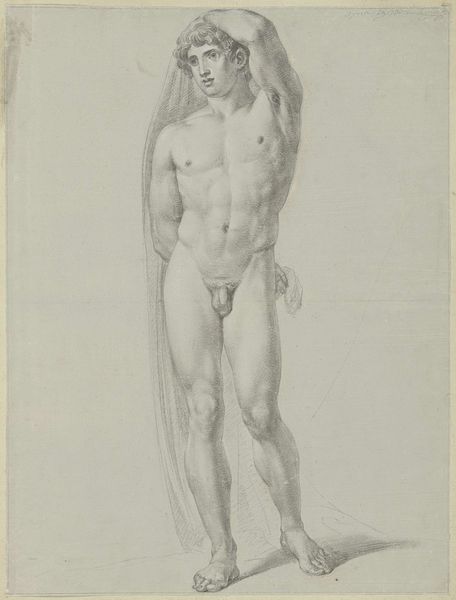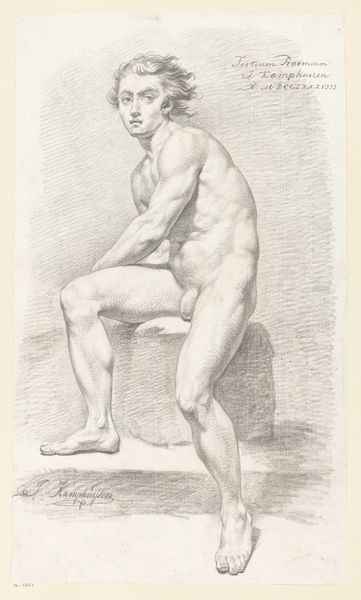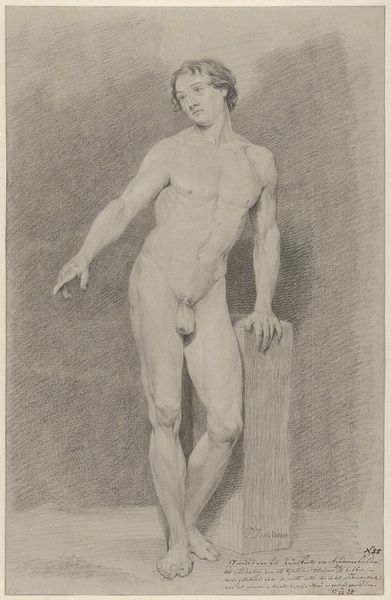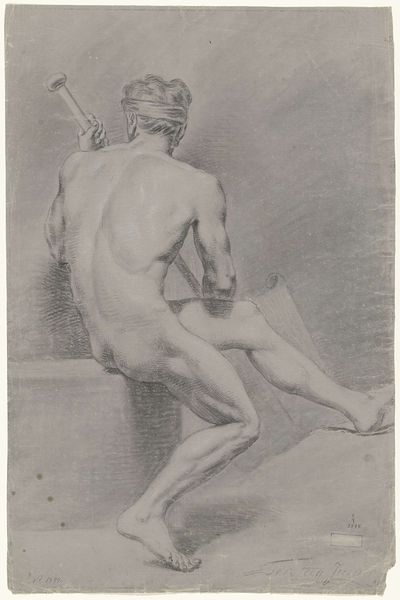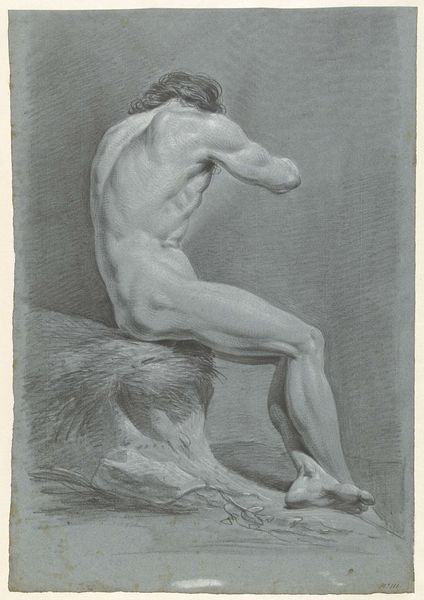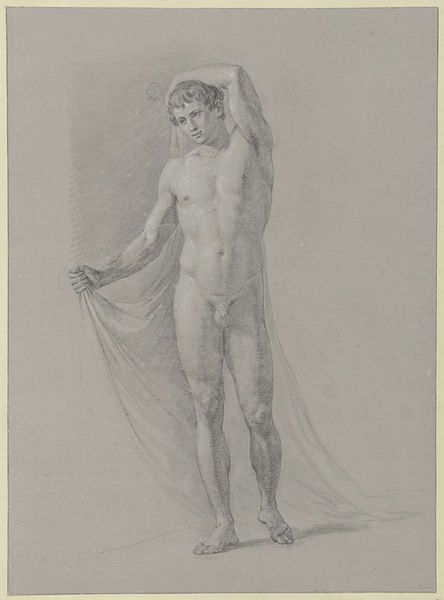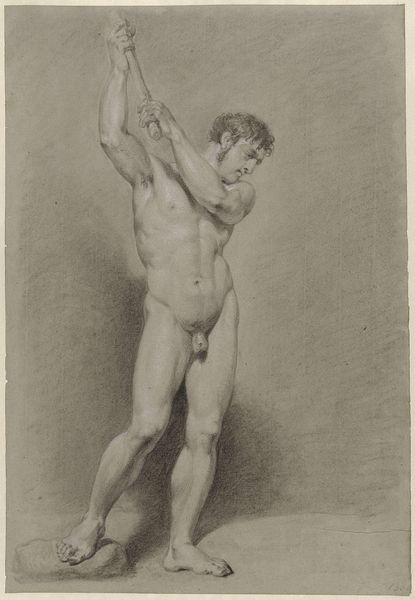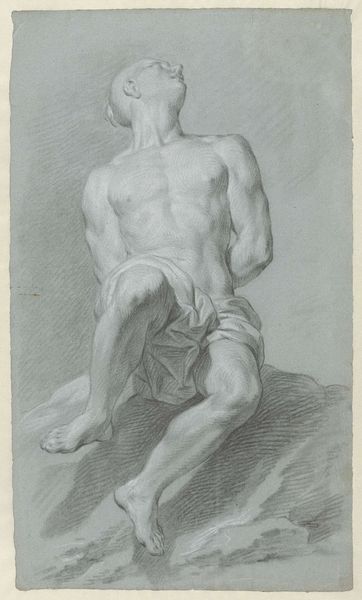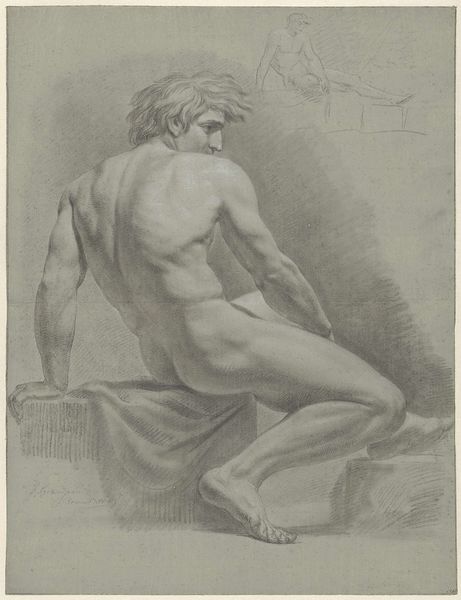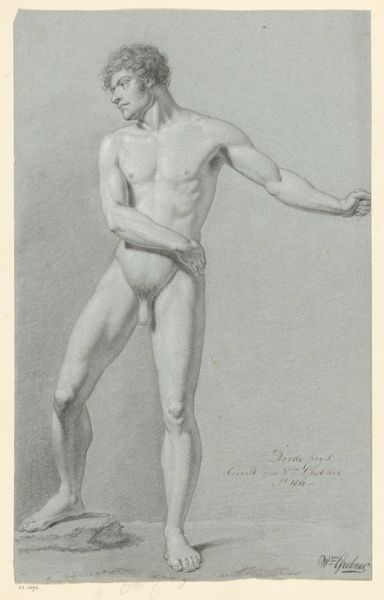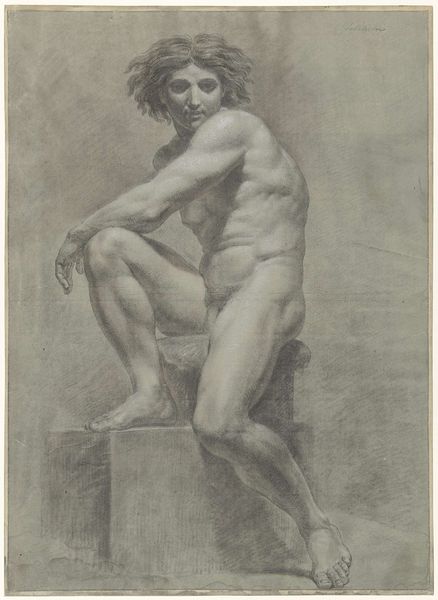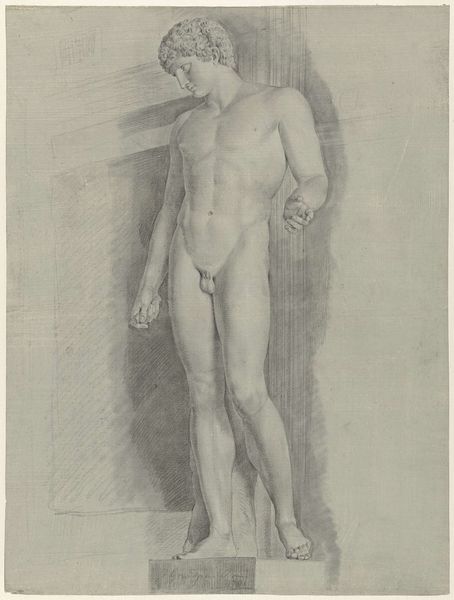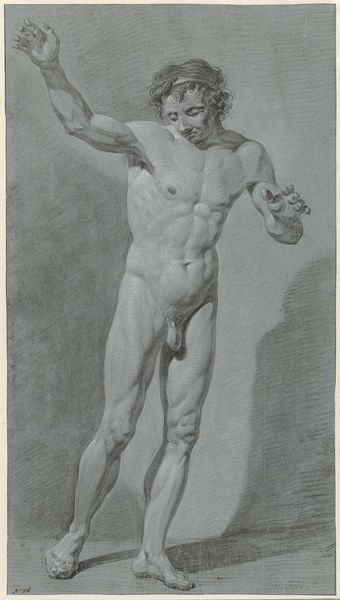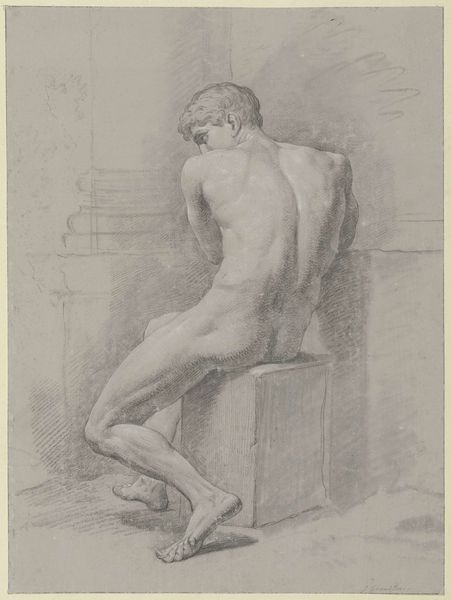
drawing, pencil
#
drawing
#
facial expression drawing
#
light pencil work
#
pencil sketch
#
classical-realism
#
charcoal drawing
#
figuration
#
charcoal art
#
portrait reference
#
pencil drawing
#
pencil
#
portrait drawing
#
academic-art
#
nude
#
portrait art
#
fine art portrait
Dimensions: height 572 mm, width 425 mm
Copyright: Rijks Museum: Open Domain
Editor: This is "Standing Male Nude, Arms on a Block" possibly from 1779, a pencil drawing by Jean Grandjean. There's something quite still about it, a quiet observation. How do you read this drawing? Curator: Well, right away I'm struck by its classicism, wouldn't you say? This figure, posed so deliberately, almost seems to breathe the air of antiquity. Look at how Grandjean captures the light playing across the muscles, the way the shading models the form. He's not just depicting a nude; he's referencing an entire tradition of idealised beauty. There is a certain grace that is in conversation with its almost hyper realistic qualities. What I'm wondering, and perhaps you are too, is what could this tell us about beauty at this moment in time? Editor: Yes! It definitely has a classical feel. But he’s also just… standing there. It doesn't have the drama of a lot of history painting. Curator: Exactly! It's like a fragment, a moment plucked from a grand narrative. I'm curious, do you get the sense that it is about that idealized figure, or about something else? Perhaps a longing for the past or, heaven forbid, maybe Grandjean was trying something altogether new. It does have that "end of an era" feel about it. It seems to hint towards something on the horizon. What do you think of that, any budding revolutions forming? Editor: That's really interesting, thinking about the transition... it makes you wonder what he was hoping to capture, what was on his mind. Curator: Indeed. And isn't it wonderful when a piece of art prompts such reflections, blurring the boundaries between the artist's intent and our own interpretation? Thank you, Jean!
Comments
No comments
Be the first to comment and join the conversation on the ultimate creative platform.
